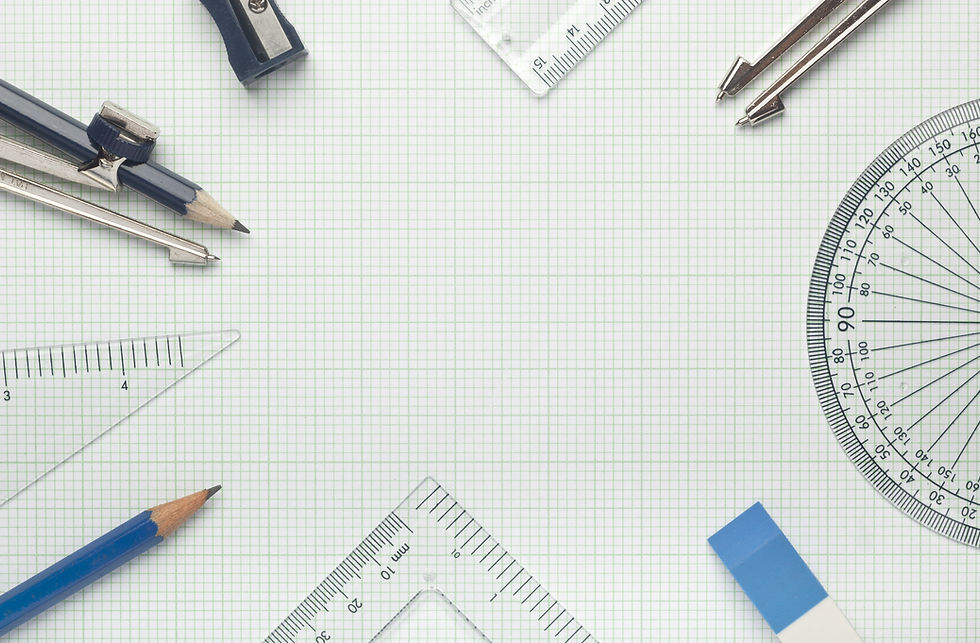IS A PENCIL & PAPER STILL RELEVANT IN 2018?
- Richard Kunst

- Feb 19, 2021
- 3 min read
In today’s technology world where we have an app to do virtually everything one ponders if paper and pencils should be relegated to the trash bin.
Readers need to understand that we are raving fans of technology. We will apply the latest and greatest technology in any manner that will make our life just slightly better. I am concerned that in many organizations the use of technology is applied to gathering information and data rather than to analyze.
Early in my career as I was being trained and coached on the application of Lean Methodologies I attempted every excuse to apply technology to process only to be told that a pencil and paper would suffice. The latest technology advancement we were allowed to use was White Boards ... and WOW did we ever fall in love with that technology but it still had a common principal ..
By having someone personally write or document on either a piece of paper or a White Board automatically created an emotional attachment between the person and what ever they were updating. Hence why we typically see a dramatic drop in unscheduled downtime after the adoption to Total Productive Management (TPM).
Process with Paper and Pencil, and Produce with Technology
The compass that guides my direction regarding the paper/pencil vs. technology debates is people should process information using paper and pencil and then demonstrate their knowledge, or produce, using technology. Like most education ideas, pedagogy, and trends, I use this as a general guideline and not a set rule.
Why?
According to Can Handwriting Make You Smarter, written by Lee Hotz in the Wall Street Journal, recent studies have shown measurable benefits to writing notes by hand as opposed to notes typed on a laptop. The article covers both research done at Harvard and University of Nebraska - Lincoln, as well as earlier studies published by Pam Mueller of Princeton and Daniel Oppenheimer of UCLA. While the studies draw a variety of specific conclusions, one overarching theme points to the fact that learners learn better when they process information, and that learners process better when they write by hand.
Finally as people input data through tier local key board or data generated by print-outs the subliminal aspect of our is that it looks and feels too clinical and perhaps is likelynot accurate or to be trusted.
Is Pencil and Paper Dead?
This little anecdote says a lot about the way we do business. It illustrates the difference between focusing on problems and focusing on solutions:
When NASA began the launch of astronauts into space, they found out that pens wouldn't work at zero gravity. Ink won't flow down to the writing surface. In order to solve this problem, they hired Andersen Consulting (Accenture today). It took them one decade and 12 million dollars. They developed a pen that worked at zero gravity, upside down, under water, on practically any surface including crystal and in a temperature range from below freezing to over 300 degrees C.
The Russians used a pencil...
Final Thoughts ...
Go to a meeting at a nice hotel or conference venue, and you'll likely find a fresh pad of paper and a pencil or pen neatly set out at each place. This seems like a pleasant anachronism in an age when most people seem to take notes on a laptop or tablet. As it turns out, even though most of us can record more information using a keyboard, we actually remember less than when we write notes the old-fashioned way.
A new study by Pam Mueller of Princeton University shows that recall of presentation material is lower when note-takers use laptops vs. pen and paper.
One logical explanation might be that electronic devices have the potential to distract the listener. Email arrives, Facebook notifications pop up, and a million websites offer content that is more seductive than a talking head behind a podium.In fact, even when distractions are completely eliminated, laptop note-takers perform worse on subsequent testing.
The scientists attribute this to the lack of cognitive processing that takes place when taking electronic notes. Often, these notes are detailed transcriptions of at least some of the speaker's words.
Taking paper notes, by comparison, is far slower. The listener has no choice but to summarize what the speaker is saying and make choices as to what to write down. This extra cognitive processing seems to be the key factor in greater recall.




Comments